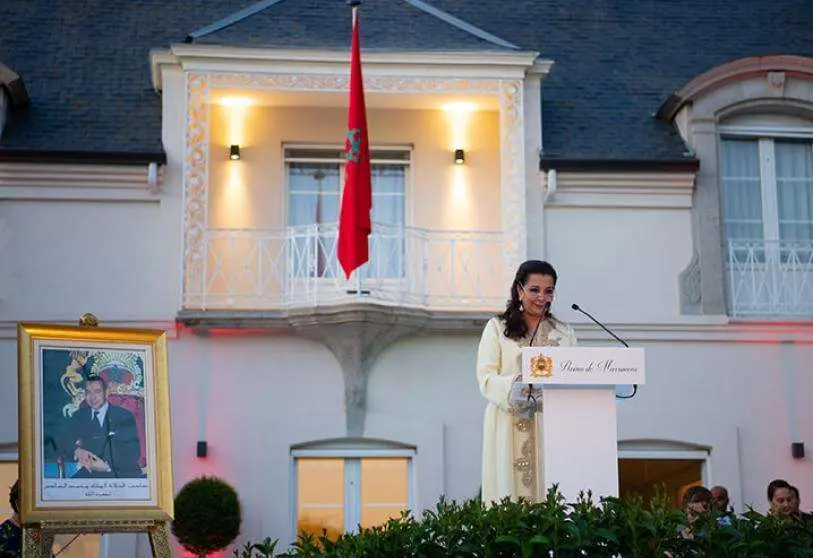Foreign policy is not to be trifled with

The ambassador of the Kingdom of Morocco, Karima Benyaich, is categorical, "... acts have consequences that must be assumed", in a clear reference to the clandestine reception of Polisario Brahim Ghali.
The counterproductive silence (Fernández-Arribas, Atalayar, 12-05-21) of Sánchez and his foreign minister and the inaction of the judiciary in the Ghali case are at the root of the diplomatic crisis.
I have taken the trouble to visit and review the Spanish press with regard to the present diplomatic crisis, coming to the conclusion that the Spanish press, almost unanimously, blames the crisis on Morocco with insults and disqualifications, taking as true the arguments of the Spanish government.
The most hostile are those coming from the Spanish left, which only likes to use the term "fascist" against the right and the ultra-right. I soon realised that the press's view of Morocco and the Maghreb in general has not only not changed, but has actually worsened. I looked up a dissertation I had prepared for a seminar entitled 'The vision of the Maghreb in the media', organised by the University of Cádiz in 2006, in the framework of 'Spanish-Maghrebi relations in the context of the Barcelona Process', and indeed, the comparison is striking: hatred of the 'Moor' is stronger today than it was 15 years ago, especially on the side of the left-wing press.
The conflict is provoked by Sánchez and his twists and turns. In the beginning, he took a turn to the left, after the embarrassing Ferraz mutiny, to win over the socialist militancy dissatisfied with Zapatero and Rubalcaba, who managed to prop him up, believing that the PSOE had moved away from the left and the centre to the neoliberal right.
Later, Sánchez went from being the "convenient" boy, but not the one the PSOE deserves, to head of the opposition and president of the government thanks, perhaps, to his "Resistance Manual". At first, his progressive policies, feminism and environmentalism brought him some admiration, especially after the Aquarius crisis, with 629 migrants abandoned to their fate in the Mediterranean. The free passage of immigration to Ceuta is a test to see if Sánchez and González Laya are capable of welcoming them on humanitarian grounds. In view of what has been seen, it seems that Sánchez's government has several yardsticks.
But already in the middle of the election campaign, for the Community of Madrid, Sánchez decides to welcome the Polisario Ghali to give a leftist effect to his debacle. In other words, if Pablo Iglesias in his selfishness believed he could save Madrid from Ayuso, Sánchez "was not going to be any less", as the Madrid anthem says, and decided to use foreign policy for partisan purposes.
The diplomatic crisis began when González Laya refused to explain the illegal and clandestine entry of the separatist Ghali, aggravated by the inaction of the Spanish justice system. The call for consultations to tell the Moroccan ambassador that relations between "neighbouring and friendly" countries must be based on "mutual trust" is insolent. Paradoxically, such trust has been betrayed by Sánchez and by herself, clandestinely admitting the enemy of her "friend and neighbour".
But the distortions do not stop there: the minister continues to insist, despite what is falling, that all this has nothing to do with the Ghali case, and ends by saying that she had not understood it as an "aggression" (we have already said that Spain's foreign policy is in inexperienced hands). On top of this, the Spanish press accuses Morocco of creating the crisis and justifies the presence of the Polisario fugitive with a story that is offensive to the Kingdom of Morocco and its people. Moreover, Sánchez's threatening speech before his trip is based on a Moroccan invasion of Ceuta. The people of Ceuta did not buy it and welcomed him with a vengeance, aware that it was he who created the crisis.
Using foreign policy in a partisan way is foolish, particularly when the country's diplomacy cannot take positions on the side of any separatism when Spain is a hotbed of regional nationalisms with their own languages and with many pro-independence desires that have the country divided and in pre-civil war.
The crisis opened by Sánchez's government and his minister against Morocco's nuclear interests will not be closed. It is very likely that relations will be re-established with Casado as president, despite him and despite Tezanos' CIS. For the PP has already taken his measure in Madrid.

